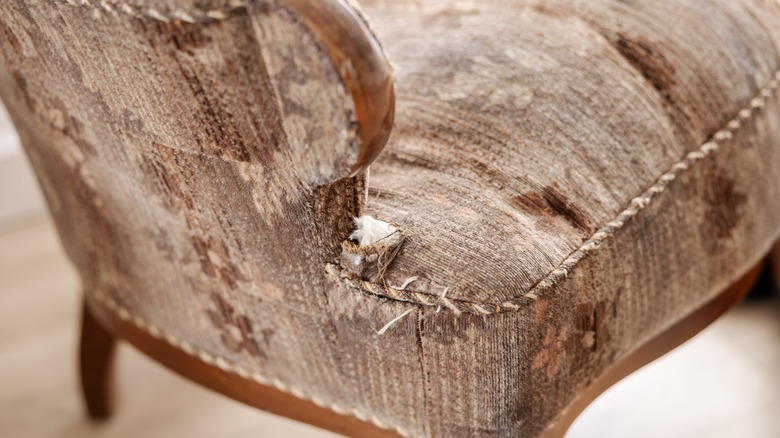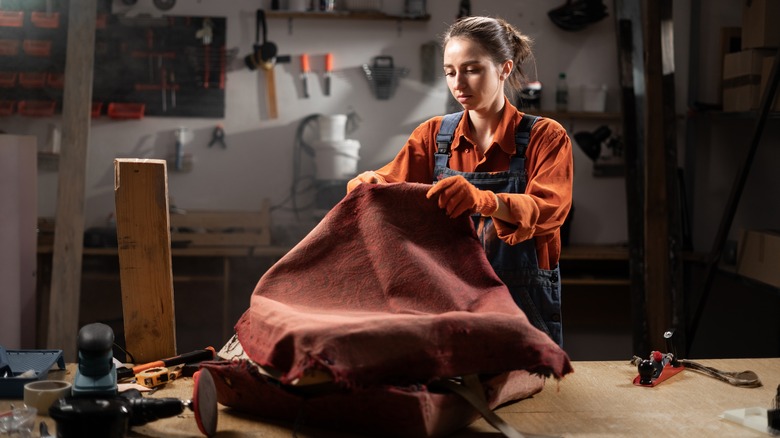The Average Cost To Reupholster An Armchair DIY-Style Vs Hiring A Professional
Reupholstering is a great way to upgrade furniture you already have, giving it a fresh new look and extending its lifespan. If you're a crafty person looking for a side hobby to keep you busy, the DIY route may be the way to go. On the other hand, hiring a professional will help you execute your vision without the stress of doing it all on your own.
Reupholstering an armchair can be a tricky job, and requires patience, a steady hand, and skill. Professional services may come with a higher upfront cost, but their experience in handling complex projects and fabrics will ensure that your armchair coverings are durable and well-made. Of course, the only drawback is that you will have to budget for additional labor costs.
Whether you DIY or work with an expert, reupholstering does not come cheap. One of the myths about reupholstering is that it could be more affordable than buying new furniture. That may not always be the case, as the cost of materials and supplies could add up quickly. Fabric can be rather pricey, especially natural materials; those who are newer to reupholstering may even consider purchasing a few extra yards for backup in case a re-do is necessary. Before you proceed with reupholstering, it's worth assessing the chair to determine if it is worth the effort. A high-quality chair made of sturdy solid wood will hold up better over time than one made of cheaper engineered wood. If your chair is one-of-a-kind or holds sentimental value, that's likely enough of a reason for you to bring your furniture back to life with reupholstering. So, let's compare your options.
Comparing costs of DIY vs. professional reupholstering
The cost of reupholstering an armchair will vary with or without professional help, as the style of the chair will determine how much fabric is necessary. According to Fabric Resource, a regular occasional armchair uses 8 to 9 yards of fabric, but a wing-backed armchair with a ruffled skirt could require up to 13 yards. Natural fabrics such as cotton, linen, leather, and wool offer a more luxurious texture, so they generally cost more than synthetic materials. The advantage of synthetic fabrics is that they tend to be more stain-resistant. With that being said, there are also downsides to both. Some synthetic fabrics can become damaged over time, while natural materials require professional cleaning every so often. Whichever option you choose, some additional spending may be required down the line for ongoing maintenance. Fabric-makers typically sort the materials by letter grade, with Grade A fabrics being the most affordable and Grade F being the most expensive.
Hiring a professional comes with an additional surcharge. According to the verified pricing guide by Fixr, the U.S. national average cost of a professionally-reupholstered armchair, with labor costs included, ranges from $280 all the way up to $1,100. The price will vary depending on the age, overall condition, size and shape of the chair, if there are pillows included, or if the padding needs replacing. These elements could add extra time and difficulty to the job, which means higher labor costs.
If you're going the DIY route, you will need to buy, rent, or borrow various professional tools. To start, you will need an upholstery staple gun, mallet, staple remover, fabric scissors, specialized needles, pins, and a sewing machine which alone could cost over $1,000. But if you plan to reupholster additional furniture, the DIY option will save you money in the long run.

